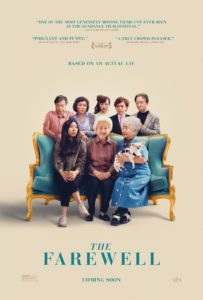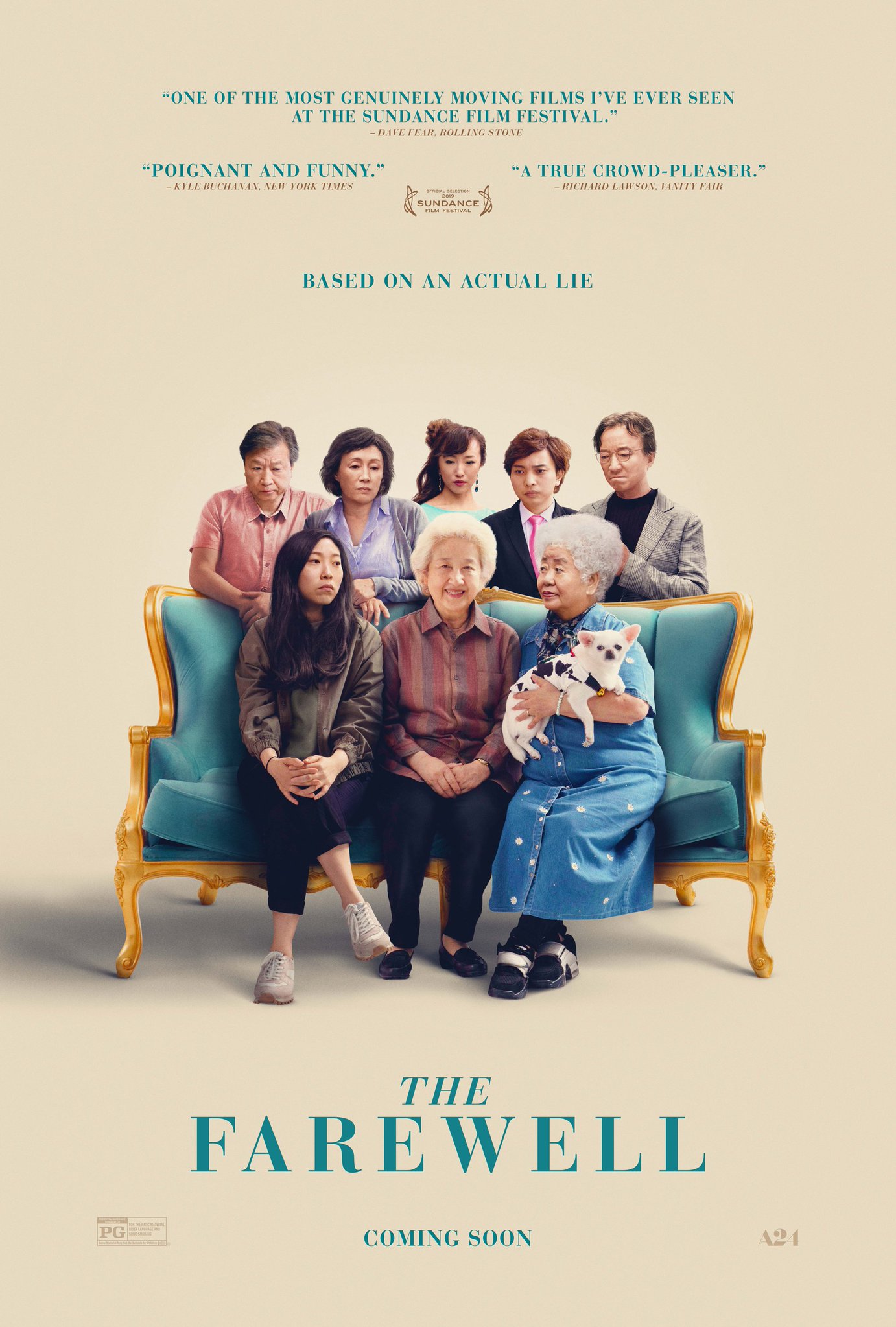The Farewell
Posted on July 18, 2019 at 5:34 pm
A-| Lowest Recommended Age: | Middle School |
| MPAA Rating: | Rated PG for thematic material, brief language and some smoking |
| Profanity: | Brief mild language |
| Alcohol/ Drugs: | Drinking and drunkenness |
| Violence/ Scariness: | Terminal illness, grief and loss |
| Diversity Issues: | A theme of the movie |
| Date Released to Theaters: | July 19, 2019 |
| Date Released to DVD: | November 11, 2019 |

In the movie, Wang’s character is Billi (Awkwafina, shining in a very impressive lead dramatic debut role), a student in New York. The movie informs us as it opens that it is “based on an actual lie.” Billi is very close to her Nai Nai (Shuzhen Zhao), meaning that they talk often by phone and love each other unconditionally. But that does not mean that Billi is honest with her grandmother. She tells the kind of little white lie most of us tell our mothers and grandmothers. Half a world away, Nai Nai solicitously asks her granddaughter whether she is wearing a hat and Billi assures her that she is. Billi understands that it isn’t about a hat; her grandmother is just showing that she cares and in her own way she is doing the same.
Billi does not have the same easy warmth with her parents, and she does not tell them the truth, either. But that is more to protect herself from their disapproval and nagging than to reassure them. And she is enough of an American to be very uncomfortable with the idea of not telling Nai Nai the truth. Her mother explains that while Americans are all about individual autonomy and self-determination, Chinese think of the group first, and that means that the family is most important.
And so, they concoct the lie that Billi’s cousin, who lives in Japan, has decided to marry his girlfriend, and the wedding will be in China. They will all gather for a fake happy occasion because it’s “too painful to say goodbye.” For Billi, though, as I suspect for most of the people who will read this review, it is more painful to feel disconnected from her sorrow and sense of devastating loss.
This film is sharply written and beautifully performed. It is a perfect example of the adage that the more specific a story is, the more universal it is. The Chinese settings and customs will seems strange and in some cases odd or funny to westerners, but everyone will understand the emotions — the way the family members want and expect so much from each other. Cultures may have different ideas about what we tell each other and how we mourn. But we all experience fear and grief, and we all try to find ways to comfort each other. Sometimes we tell stories like this one to help bring us together.
Parents should know that the themes of this film included illness and grief. Characters drink and get tipsy and there is some brief mild language.
Family discussion: Who should decide what medical information to give to Nai Nai? Why is Billi closer to her grandmother than her parents? What elements of this story are most like your family?
If you like this, try: “Riding Alone for Thousands of Miles” and “The Joy Luck Club”

